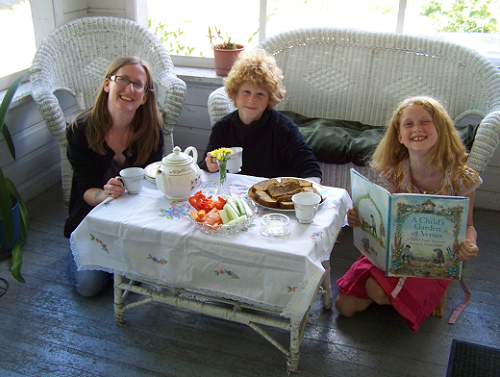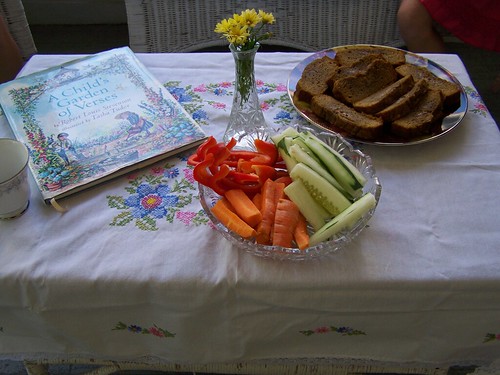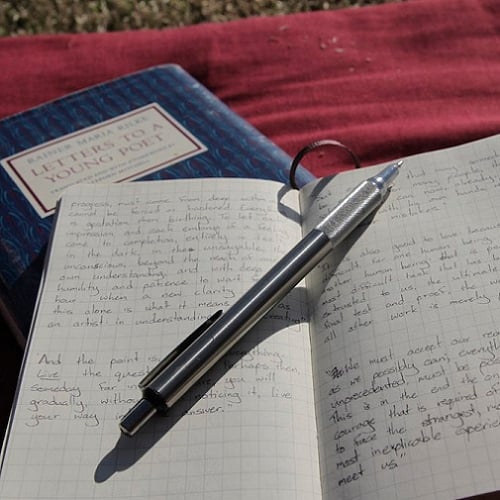We’ve just started using Brave Writer end of last year and the beginning of this school year we started the Teatimes. The kids were really excited to share poems together. My son (age 12) bought me a book “Sixty Poems” by Rudyard Kipling this summer at a used book sale in anticipation of these teatimes, so we tried some of those out, in addition to our Robert Louis Stevenson favorites.
One funny thing that happened was that we set the teatime up on the front porch area due to the amazing weather we were having. As soon as our teatime started, the neighbor across the street starting using some kind of really loud saw or grinder. We kept laughing about how it “disturbed the dignity and repose of the tea party.” (which is a quote from the Tale of Tom Kitten). Every poem was accented with a loud grinding/sawing sound.
Last weekend the kids asked if we could buy a half gallon of apple cider for our next Tuesday Teatime, which shows how much they are enjoying it!
~Angie
Images (cc)
























